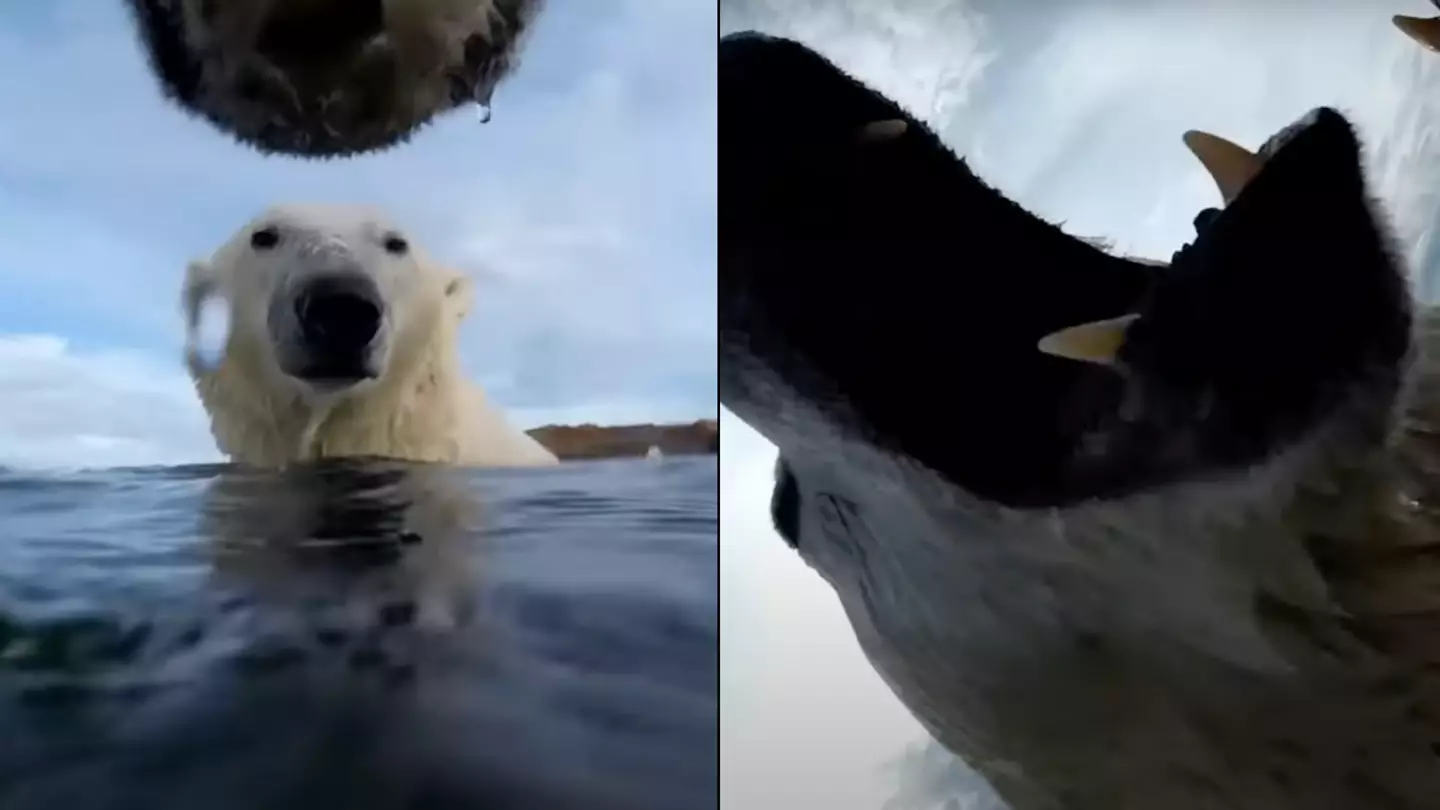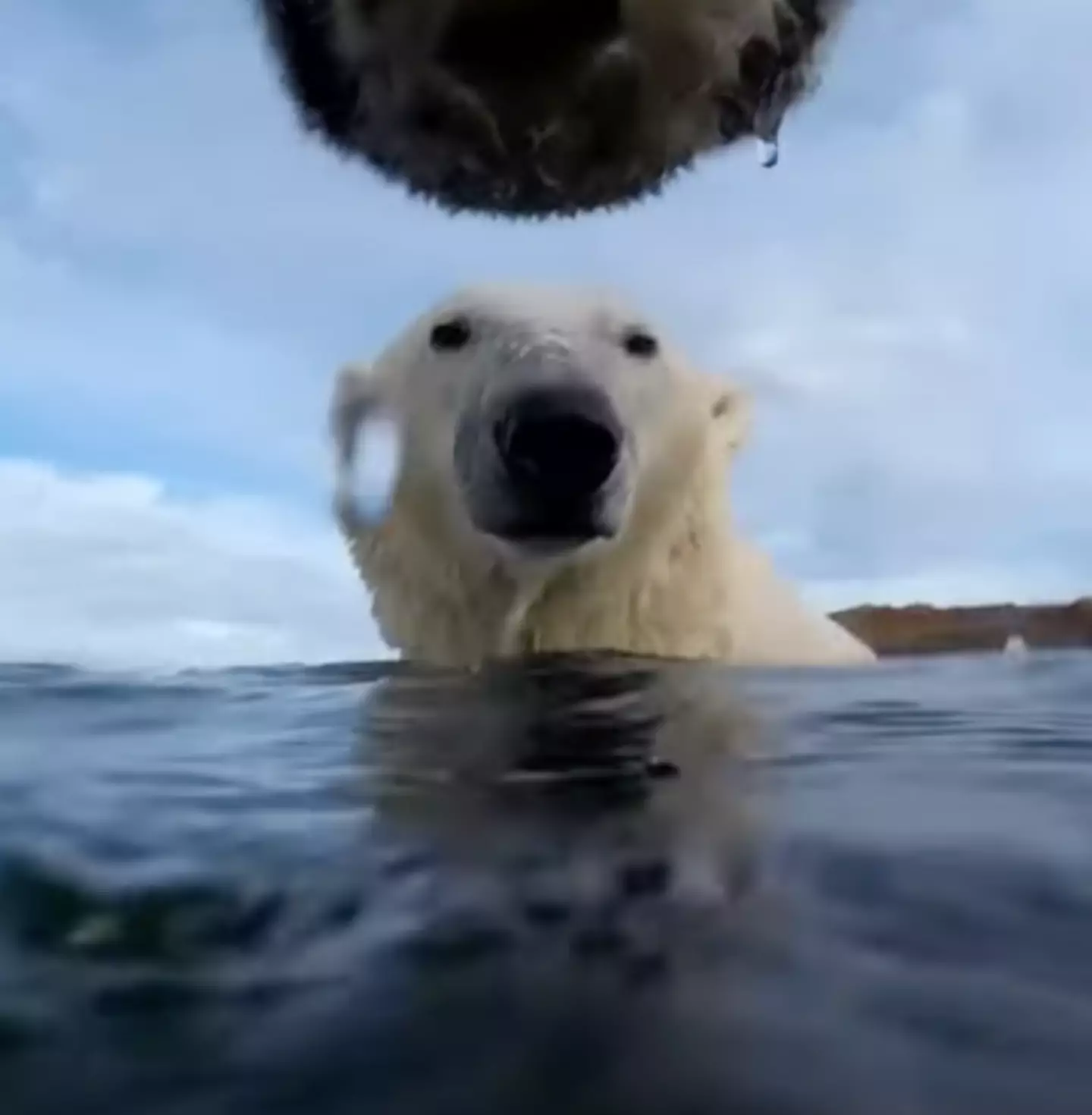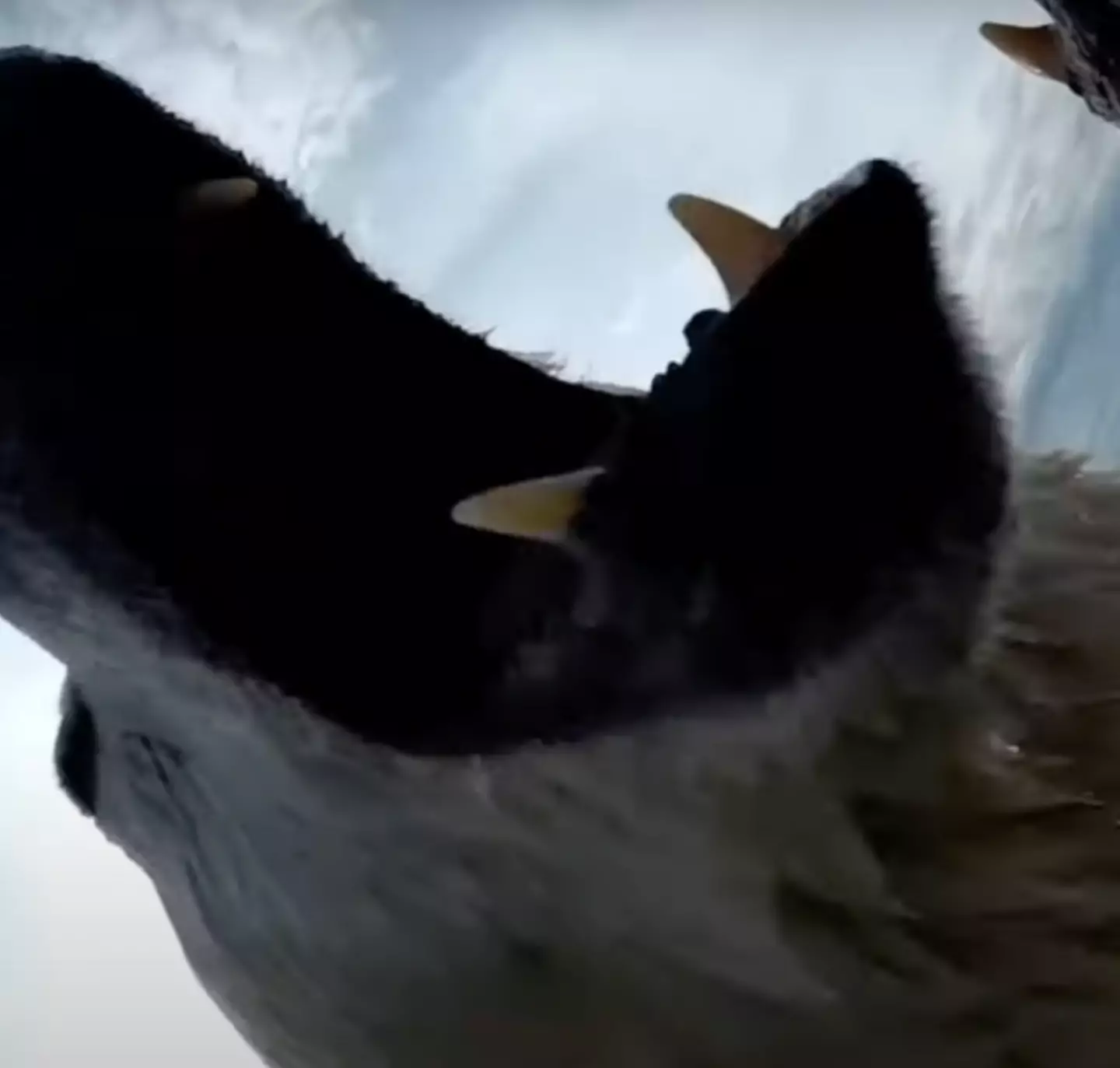
Scientists have been left shocked over what they found after carrying out an experiment where they strapped cameras to polar bears.
Polar bears are known to be suffering from the changes of climate change, and are rated as 'vulnerable' on the endangerment scale by the IUCN Polar Bear Specialist Group.
Due to global warming, increasing amounts of sea ice is melting, which is used as a platform for the predators to hunt seals - their primary food source.
Advert
With climate change also decreasing the number of weeks per year that the Arctic is covered in ice, polar bears are now spending more time on land.
Here, food with high calories are hard to come by for the gargantuan creatures.
The long-term effects of these changes to polar bears have been studied, with scientists attaching cameras to 20 polar bears in Hudson Bay, Canada.
In this area, the ice-free period is three weeks longer now than it was in 1979, according to a study published in the Nature Communications journal.

Over 115 hours of footage were captured over three years, giving the public a rare insight into the life of a polar bear from its point of view.
Throughout the clips, the polar bears can be seen feeding on bird carcasses, eating berries and grass, feasting on marine animals, as well as play-fighting with each other in the water and chewing on antlers.
Anthony Pagano, wildlife biologist at the US Geological Survey (USGS) and leader of the study spoke on their findings to Vox: “We were amazed by the video footage.
“The video footage really highlighted how intelligent these animals are by using different behaviour strategies to survive their time on land while without access to their primary prey."
Scientists had predicted that polar beats might cope with increased time on land by resting to save energy, or filling up on other prey such as plants and seabirds.
It turns out that they used both, according not just to the footage but other data collated by the scientists such as energy burned and measurements of movement.
Despite the split in approaches among the polar bears, neither was successful, with all but one of the 20 subjects losing weight.
One even lost near 80 pounds, something that was incredibly alarming to the researchers.
The polar bears were also revealed to be taking longer swims, which is 'unexpected for this time of year', according to polar expert at the University of Alberta Andrew Derocher.

Derocher further explained: "These are possibly acts of desperation. Hungry and skinny bears take more risks than fat bears.
“This study really brings home the message that there’s no salvation from terrestrial feeding to help polar bears through the ice-free period,” he stated, referencing that eating berries and smaller prey isn't helping them in the long-term.
The polar bear population in this area is estimated to have fallen 30% since 1987, with this study proving that further global warming will make it even harder for the species to survive.
Areas in Greenland and Svalbard have seen the species hunt using ice that breaks off glaciers year-round, but it is not perceived as positive news, but framed as a last gasp attempt to stay alive.
Topics: Global Warming, Environment, Animals, News